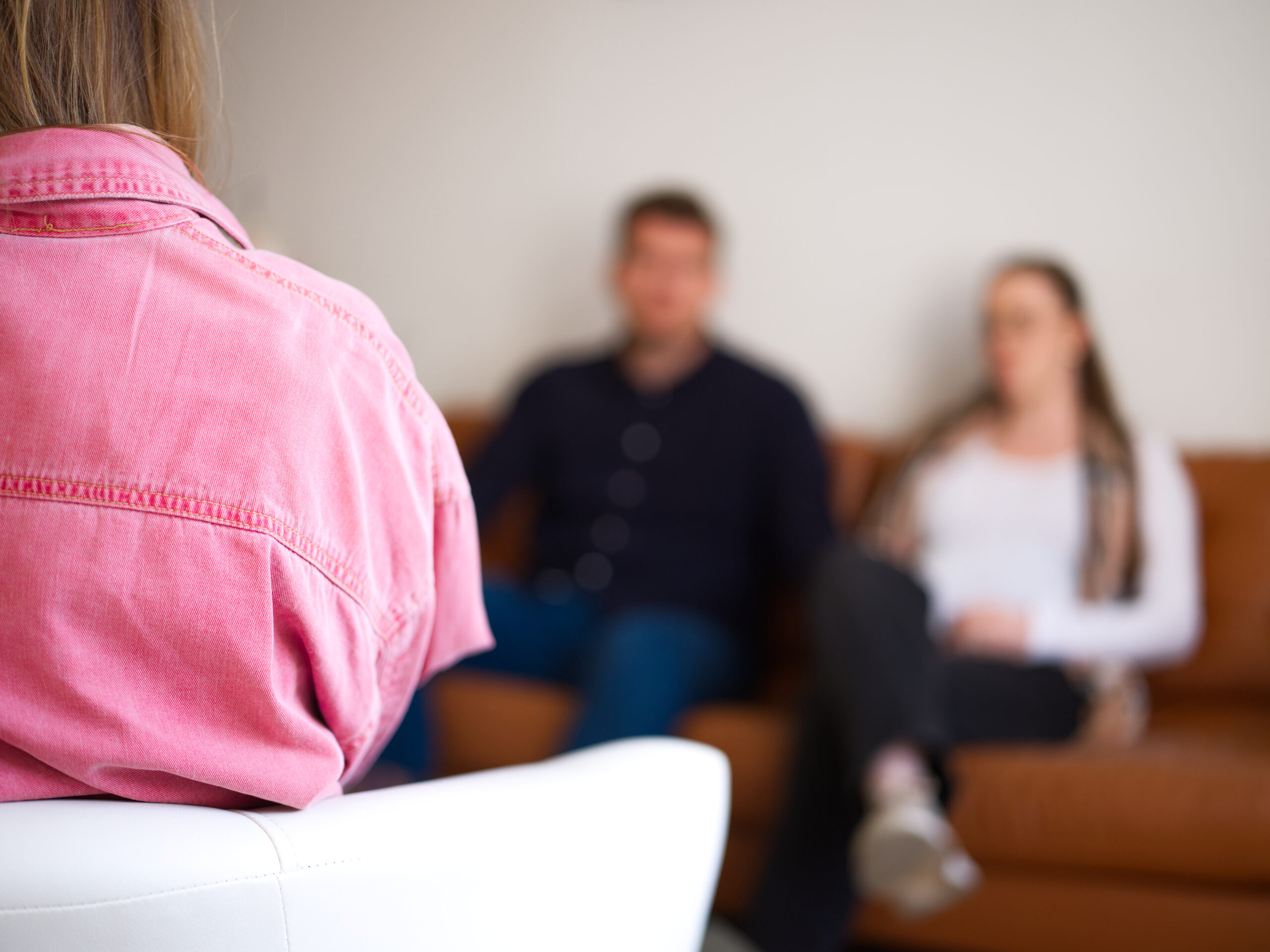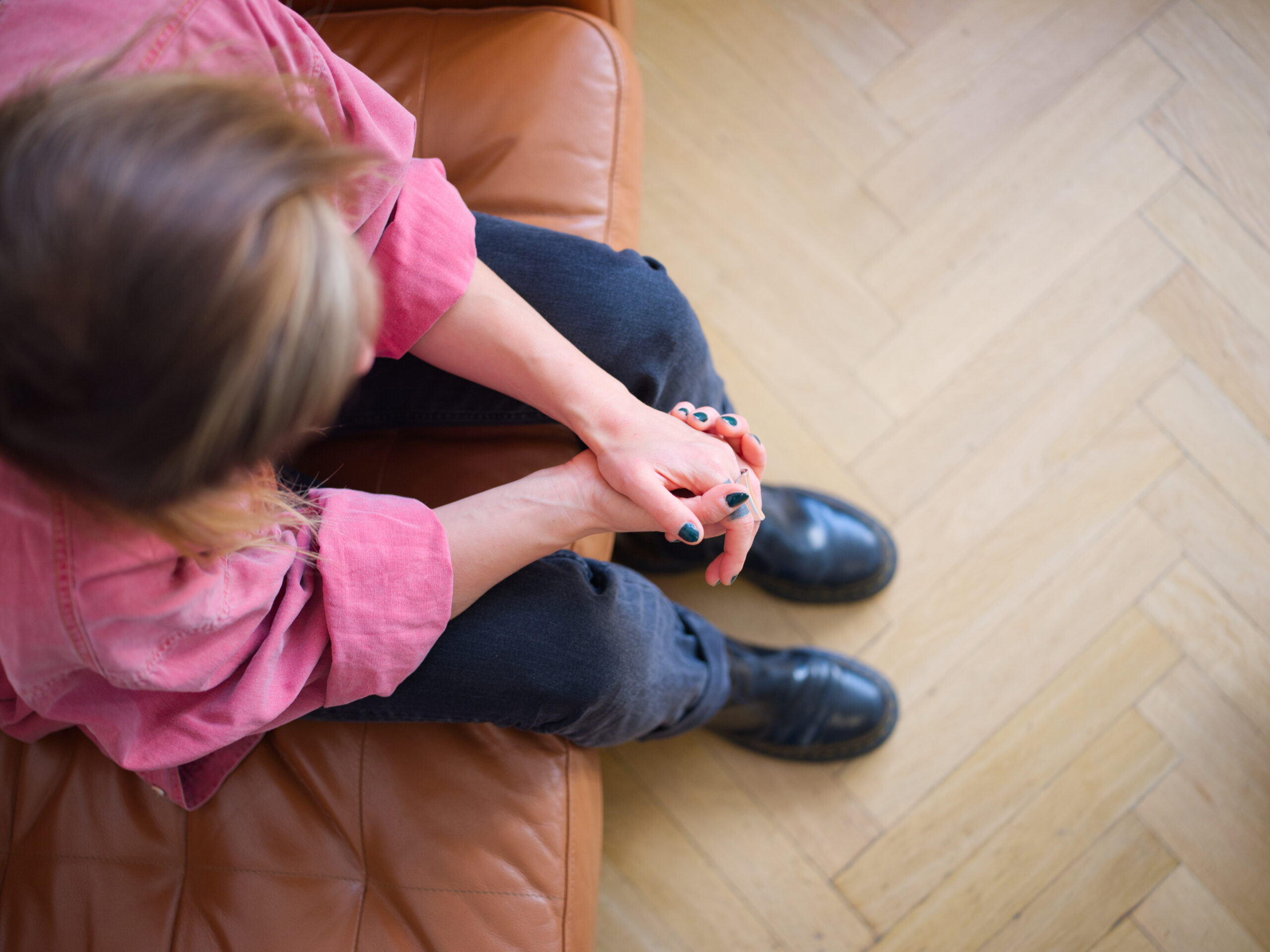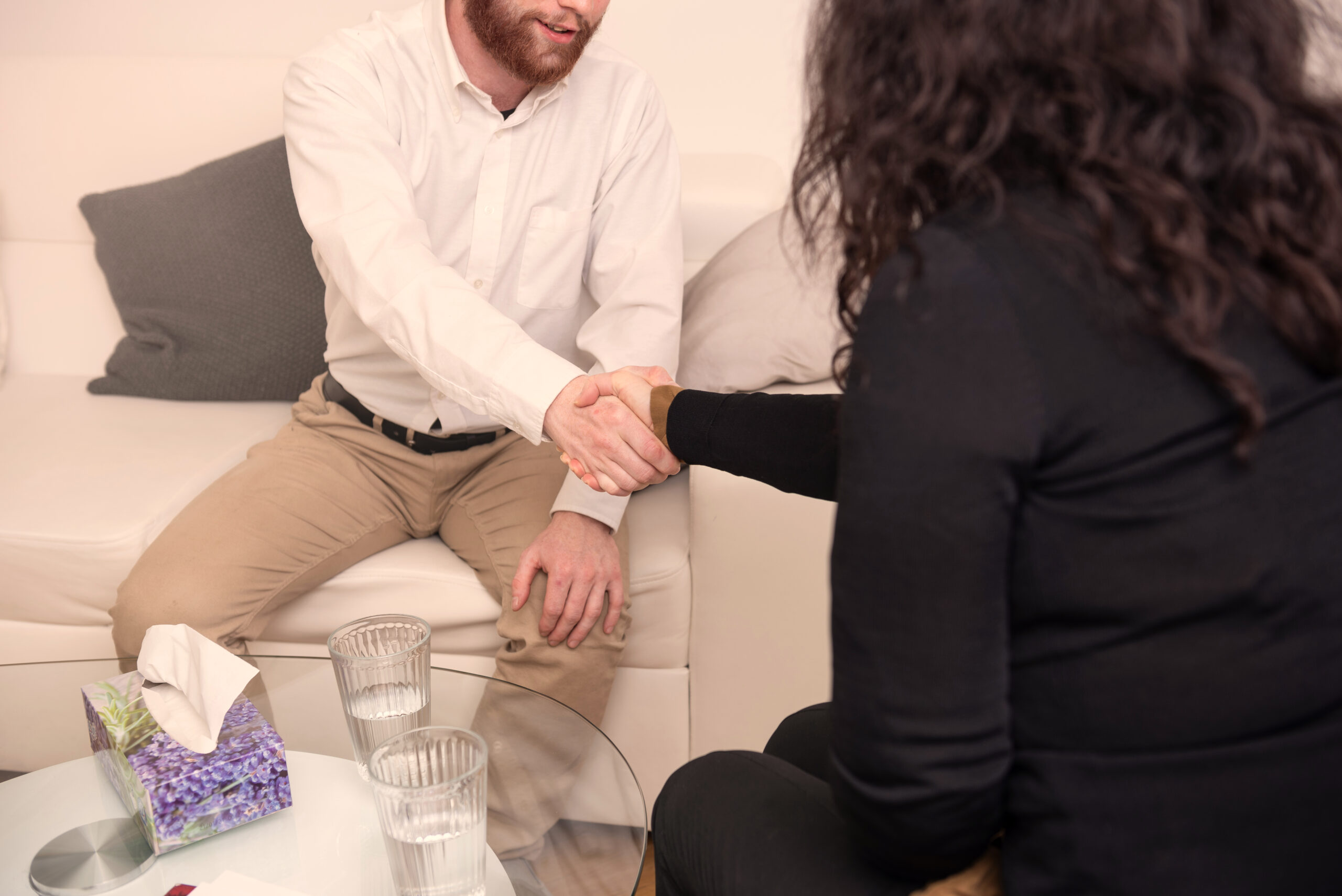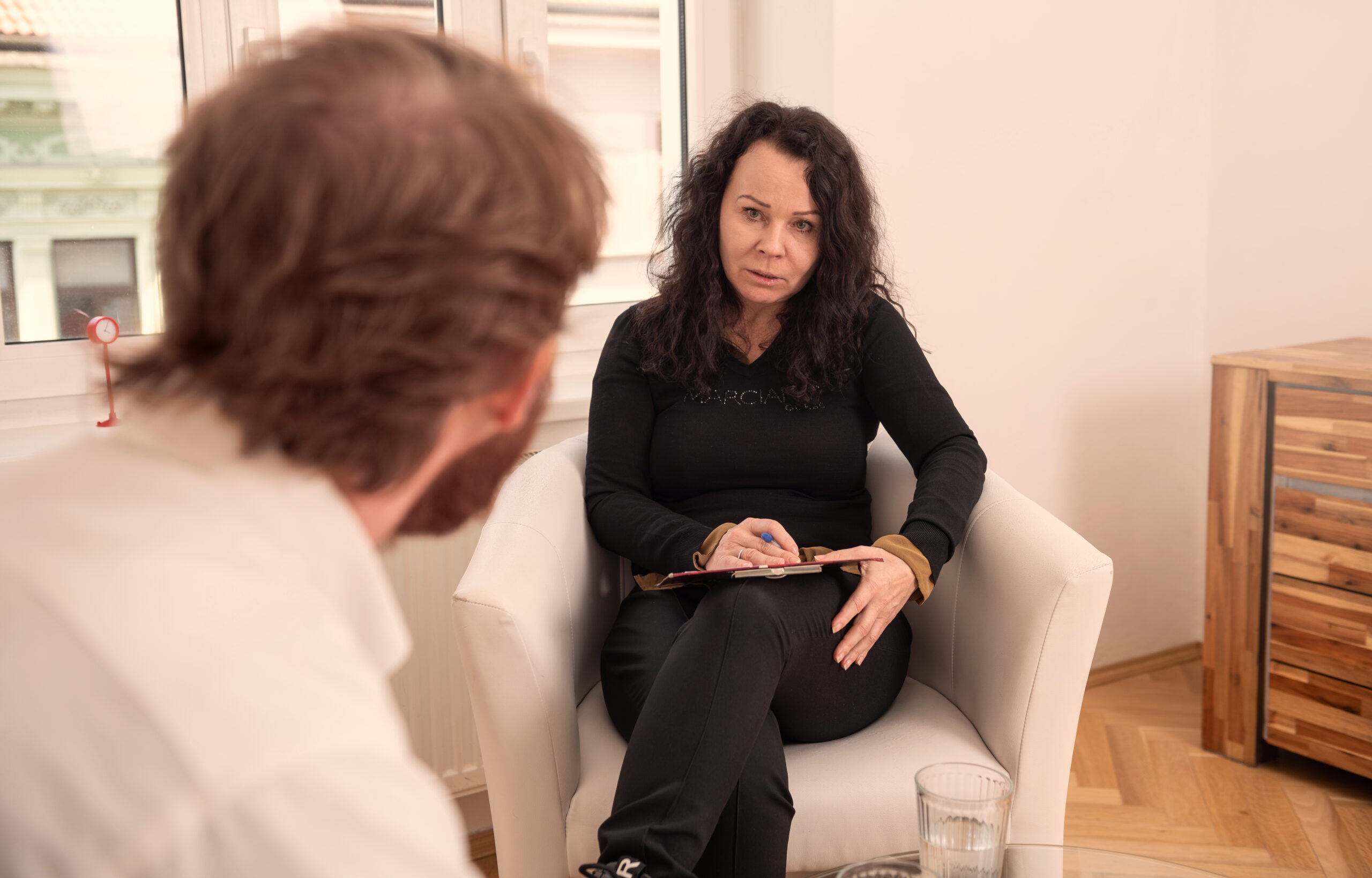Typical features of social phobia are uncomfortable feelings in contact with people and a subsequent desire to avoid these situations. People with social phobia experience fear of any activity in which they might be observed and critically evaluated. They anticipate that they will not be able to cope with the situation, they will appear strange, the environment will notice their embarrassment, judge them, ridicule them and gossip about them. Social phobics subject their every gesture, action or verbal expression to irrational and ruthless analysis.
Do you think you need help or at least want more clarity? Make an appointment for a no-obligation initial and diagnostic consultation or just give us a call, we will be happy to advise you and help you with everything. At our first meeting we will talk about your difficulties, find out the severity of your problems and the possible causes. We will suggest a course of action and, if necessary, select your personal therapist so that he/she not only meets your professional requirements, but also suits you humanly.







